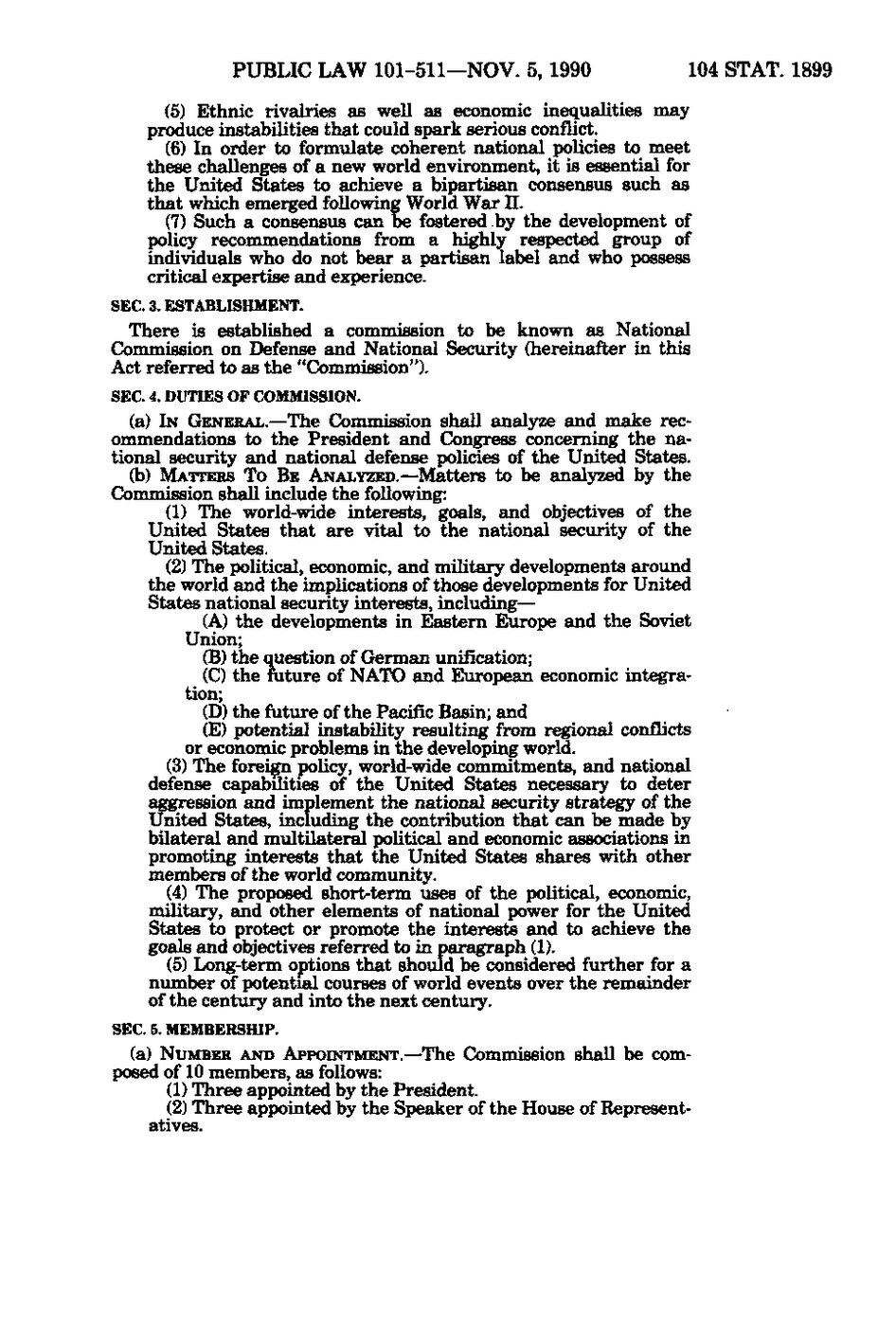PUBLIC LAW 101-511—NOV. 5, 1990 104 STAT. 1899 (5) Ethnic rivalries as well as economic inequalities may produce instabilities that could spark serious conflict. (6) In order to formulate coherent national policies to meet these challenges of a new world environment, it is essential for the United States to achieve a bipartisan consensus such as that which emerged following World War II. (7) Such a consensus can be fostered by the development of policy recommendations from a highly respected group of individuals who do not bear a partisan label and who possess critical expertise and experience. SEC. 3. ESTABLISHMENT. There is established a commission to be known as National Commission on Defense and National Security (hereinafter in this Act referred to as the "Commission"). SEC. 4. DUTIES OF COMMISSION. (a) IN GENERAL.— The Commission shall analyze and make recommendations to the President and Congress concerning the national security and national defense policies of the United States. (b) MATTERS TO BE ANALYZED.— Matters to be analyzed by the Commission shall include the following: (1) The world-wide interests, goals, and objectives of the United States that are vital to the national security of the United States. (2) The political, economic, and military developments around the world and the implications of those developments for United States national security interests, including— (A) the developments in Eastern Europe and the Soviet Union; (B) the question of German unification; (C) the future of NATO and European economic integration; (D) the future of the Pacific Basin; and ' (E) potential instability resulting from regional conflicts or economic problems in the developing world. (3) The foreign policy, world-wide commitments, and national defense capabilities of the United States necessary to deter aggression and implement the national security strategy of the United States, including the contribution that can be made by bilateral and multilateral political and economic associations in promoting interests that the United States shares with other members of the world community. (4) The proposed short-term uses of the political, economic, military, and other elements of national power for the United States to protect or promote the interests and to achieve the goals and objectives referred to in paragraph (1). (5) Long-term options that should be considered further for a number of potential courses of world events over the remainder of the century and into the next century. SEC. 5. MEMBERSHIP. (a) NUMBER AND APPOINTMENT.—The Commission shall be composed of 10 members, as follows: (1) Three appointed by the President. (2) Three appointed by the Speaker of the House of Representatives.
�
